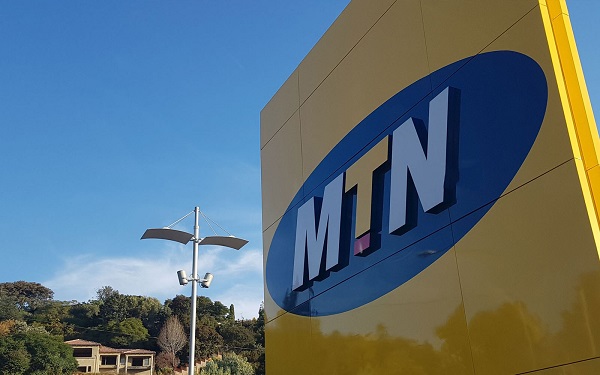This post has already been read 2388 times!
•We don’t need permission to impose service charge, says telcom
Chief Executive Officers (CEOs) of commercial banks have distanced themselves from the moves by MTN Nigeria to impose charges on Unstructured Supplementary Service Data (USSD) transactions.
The bank chief executives under the aegis of Body of Bank CEOs that have the MD/CEO of Access Bank Plc, Mr. Herbert Wigwe, as chairman, said in a statement yesterday that they never asked MTN to start charging customers as contained in the text message sent by the telecommunication company.
Their disavowal came a day after the federal government ordered MTN to suspend the introduction of service charge on USSD transactions, which was billed to take off yesterday.
The Central Bank of Nigeria (CBN) Governor, Mr. Godwin Emefiele, had on Sunday also directed commercial banks and other financial institutions under its regulation to shun the moves to impose charges on USSD services.
Providing further clarification of the service charge, the banks CEOs said the decision on whether, and what amount, to charge a customer for accessing USSD was entirely that of the telco company, in the same way a customer is billed for calls, SMS and data.
MTN, in a notice to its customers last week, had stated: “Please note that from October 21, we will charge N4 per 20 seconds for USSD access to banking services. Thank you.”
USSD is a Global System for Mobile (GSM) communication technology that is used to send text between a mobile phone and an application programme in the network.
The bank CEOs said: “We wish to state as follows: That the banks did not ask MTN to start charging customers as contained in the text message. The decision on whether, and what amount, to charge a customer for accessing USSD is entirely that of the telco company, in the same way a customer is billed for calls, SMS and data.”
According to the CEOs, MTN remains the only telco that is yet to implement end-user billing, “which is the standard practice for customer-initiated transactions.”
This, they said, was despite the fact that the banks, working with the CBN had engaged MTN for more than one year to try and bring down the cost of USSD to aid financial inclusion.
“That the banks are determined to pursue the National Financial Inclusion Strategy of the Federal Government of Nigeria and will continue to advocate that telcos identify wholeheartedly with this laudable initiative and implement transparent and low pricing model in the use of USSD access codes.
“We wish to reiterate that financial transaction charges are regulated by the CBN as stipulated in the Bankers’ Tariff, and that the charges for financial transactions carried out with banks remain unchanged,” the statement added.
But in a swift response, a top official of MTN, who spoke off the record, told THISDAY that the telecoms company did not need the approval of banks to implement the USSD charge because the USSD code platform belongs to MTN and is operated by the company to provide financial transaction services to bank customers.
“Banks still charge N50 per transaction, yet the banks do not own the USSD platform that enables the transaction, and no regulator is seeing anything wrong in it,” he added.
Responding to the allegation that MTN is the only telco that is yet to implement end-user billing, which is the standard practice for customer-initiated transfer, he said MTN did not want to join other telcos in the implementation process, since it comes with extra cost on the subscriber.
“The telcos that have implemented it are doing so with additional charges on subscriber,” he stated.
Emefiele, while warning the banks on Sunday not to allow charges on USSD transactions, had expressed the central bank’s commitment to deepening financial inclusion.
“I had made my commitments to Bill Gates Foundation as well as Queen Maxima that we would deepen financial inclusion and that by 2020 the rate of financial inclusion would have accelerated to about 80 per cent.
“At this time, we are close to about 65 per cent. We moved from about 42 per cent to 65 per cent in about 18 months and we believe that we can achieve this 80 percent if everybody, that is the bank and telecoms company, cooperate with us.
“The banks are the people who give these businesses to the telecoms companies and I leave the banks and the telecoms companies to engage.
“And I have told the banks that they have to move their business and move their traffic to a telecoms company that is ready to provide it at the lowest possible and if not at zero cost and there is where we stand and we must achieve it,” he had added.



